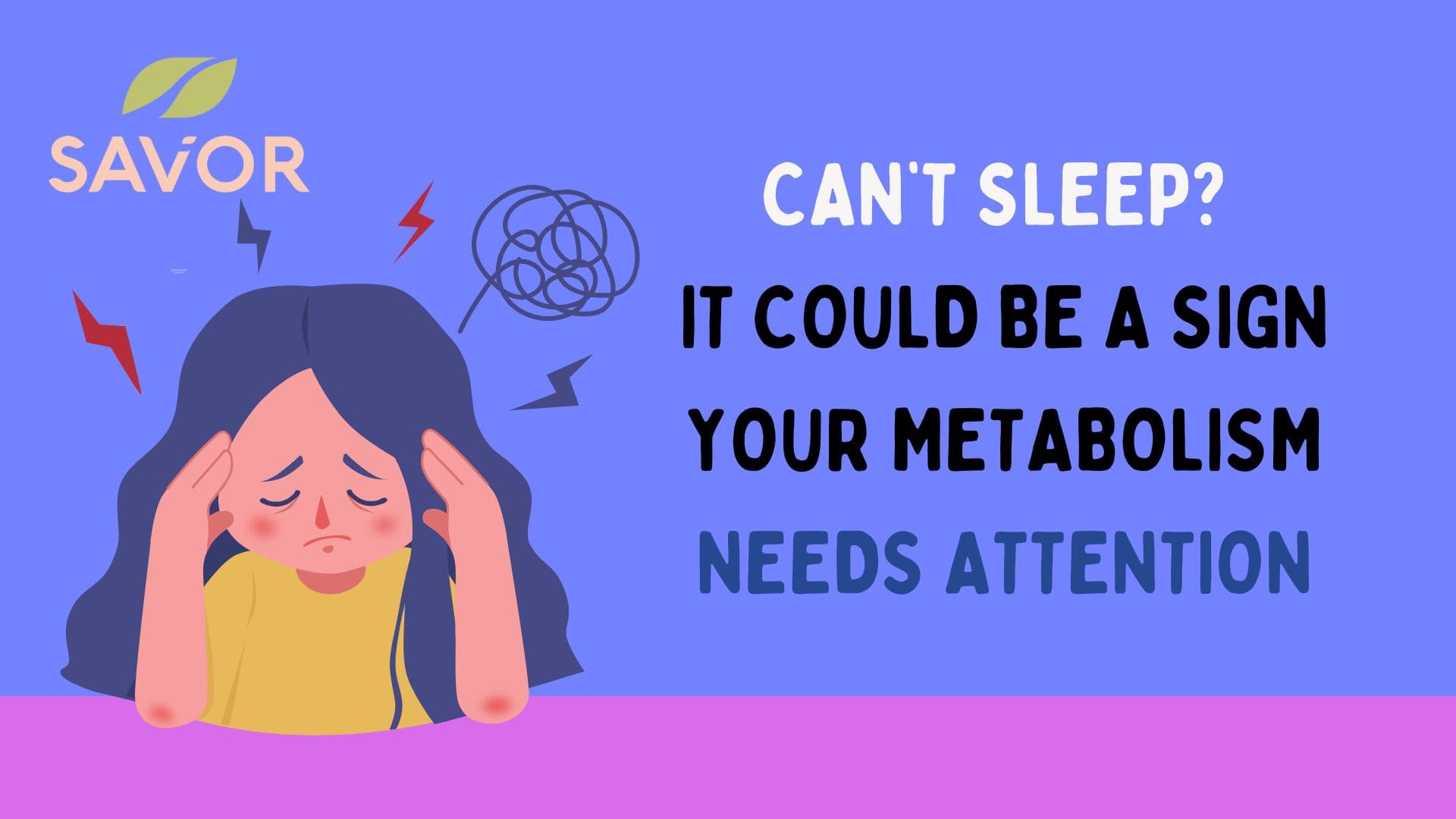Can’t Sleep? It Could Be a Sign Your Metabolism Needs Attention
Sleep isn’t just about letting your body and mind rest. It plays a big role in how well we function every day.

Can’t Sleep? It Could Be a Sign Your Metabolism Needs Attention
Sleep isn’t just about letting your body and mind rest. It plays a big role in how well we function every day.
When we don’t get enough sleep, it can wear us down and lead to all kinds of health problems over time.
Recent research shows that lack of sleep can even affect how our metabolism works. Let’s take a closer look at why getting enough sleep is so important.

The Metabolic Consequences of Sleep Deprivation
Hormonal Imbalances and Increased Appetite
Less sleep disrupts the balance of appetite-regulating hormones. Specifically, it increases ghrelin levels, which stimulate hunger, and decreases leptin levels, which signal fullness. This hormonal shift leads to heightened food cravings, particularly for high-calorie, processed foods, contributing to weight gain and obesity.
Elevated Cortisol Levels
Chronic sleep loss alters the natural secretion pattern of cortisol, the body's primary stress hormone. Elevated cortisol levels can lead to increased insulin in the bloodstream, promoting fat accumulation, especially in the abdominal area, and increasing the risk of prediabetes and type-2 diabetes.
Cellular Metabolic Disruption
Sleep deprivation affects the metabolism of various cells, including neurons. This disruption mirrors metabolic patterns observed in brain diseases, impacting cognitive functions and long-term memory.

Strategies to Improve Sleep Quality
1. Regulate Light Exposure
Increase exposure to bright light during the day to maintain a healthy circadian rhythm. In the evening, minimize blue light exposure from screens to kick-start the natural production of melatonin, the sleep hormone.
2. Reduce Caffeine Intake
Avoid consuming caffeine late in the day, as it can reduce total sleep time and affect sleep quality.
3. Establish a Consistent Sleep Schedule
Going to bed and waking up at the same time daily helps regulate your body's internal clock, improving sleep quality over time.
4. Create a Sleep-Conducive Environment
Ensure your bedroom is comfortable, quiet, and cool. Consider using blackout curtains and minimizing noise to create an optimal sleep setting.
5. Limit Evening Stimulants
Avoid heavy meals close to bedtime, alcohol, and nicotine, as they can disrupt sleep patterns.
6. Engage in Regular Physical Activity
Regular exercise can promote better sleep, but try to complete workouts at least a few hours before bedtime to avoid interference with sleep onset.
7. Avoid Substance Use
Every recreational drug not only has a negative impact on your physiology, but due to the way they interact with your brain chemistry, they could spell disaster on your sleep cycle. Avoid at all costs!

Getting a Good Night's Rest
Prioritizing sleep is essential for maintaining metabolic health. By understanding the detrimental effects of sleep deprivation and implementing strategies to improve sleep quality, individuals can reduce the risk of metabolic disorders and enhance overall well-being.
Sources:
Read up Dr. Eddie Ramirez's post on the subject:
Sleep loss = metabolic disorder!
Love great food and exclusive perks? Sign up as a Savor of Life member today and enjoy a FREE Buffalo Cauliflower with your main dish! Don't miss out—join now!
👉 Claim your reward here: Savor of Life Membership Offer
Planning an event? Let Savor of Life bring the flavors to you! From social gatherings to large celebrations, our catering services offer delicious, high-quality meals tailored to your needs.
📅 Book now and make your event unforgettable! → Savor of Life Catering
Ready to transform your wellness with specially made meals? Sign up for our Savor Transform 10-Day Challenge and enjoy exclusive perks, special offers, and unforgettable meals!